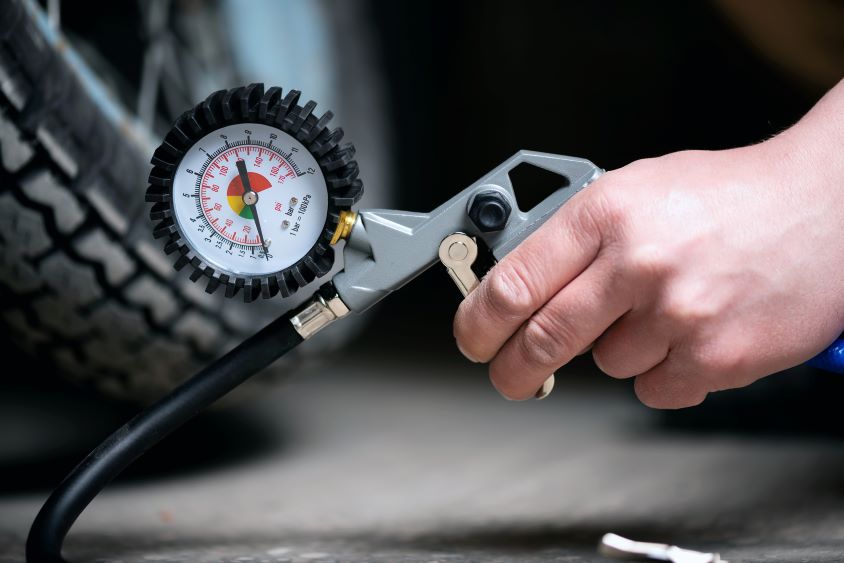Regular tyre pressure checks: Why you need to do it
Written by: Simon Pavey, Last updated:13th February 2023

Keeping on top of the maintenance of your vehicle should be a top priority for every driver. This means carrying out some regular checks to ensure everything is in good working order and functioning as it should.
One area to pay attention to is the pressure of your vehicle’s tyres, as improperly inflated tyres can not only impact the efficiency of your vehicle, they can even pose a risk to safety if left unchecked for too long.
Why is tyre pressure so important?
Ideally, you should be checking the state of your vehicle’s tyres before embarking on every journey. However, when it comes to measuring tyre pressures, it’s understandable if this isn’t done for every trip.
Most new cars will have automatic detection if your tyre pressures begin to fall, but for older models you will have to check them manually and this is recommended every week.
To do so, remove the tyre valve dust cap and attach a pressure gauge. Refer to your vehicle’s manual for recommended tyre pressures and adjust them accordingly. Make sure to check all tyres in this manner.
Furthermore, remember to bear in mind that the outside temperature can affect the pressure of your tyres. In cold temperatures they will fall and during periods of high temperature, they can increase.
What are the dangers of poor tyre maintenance?
When you fail to keep an eye on the state of your tyres, you run the risk of suffering a serious accident. Improperly inflated tyres can affect the handling of your vehicle and issues like a slow puncture can lead to a blowout.
As such, it’s not just ensuring that your tyres are inflated to the proper psi that should be a priority, you should also be looking at them regularly to ensure they are in a satisfactory condition to work safely and well.
This means regularly carrying out a visual inspection of the full circumference of each tyre and looking for any signs of excessive wear and tyre, lumps, breaks in the tyre’s surface or anything else out of the ordinary.
Remember that the legal minimum tread depth for tyres in the UK stands at 1.6 mm and this depth should span the full circumference of the tyre. You can check this easily by inserting a 20p piece into the tread of each tyre, and if the outer band surrounding the coin is obscured, then the tyre is fine to continue to be used.
MyService.Expert offers a nationwide network of garages where drivers can take their vehicles for a regular check-up. We offer discounts on all parts and labour, so keeping your vehicle in a good condition won’t have to cost you a fortune.
back


